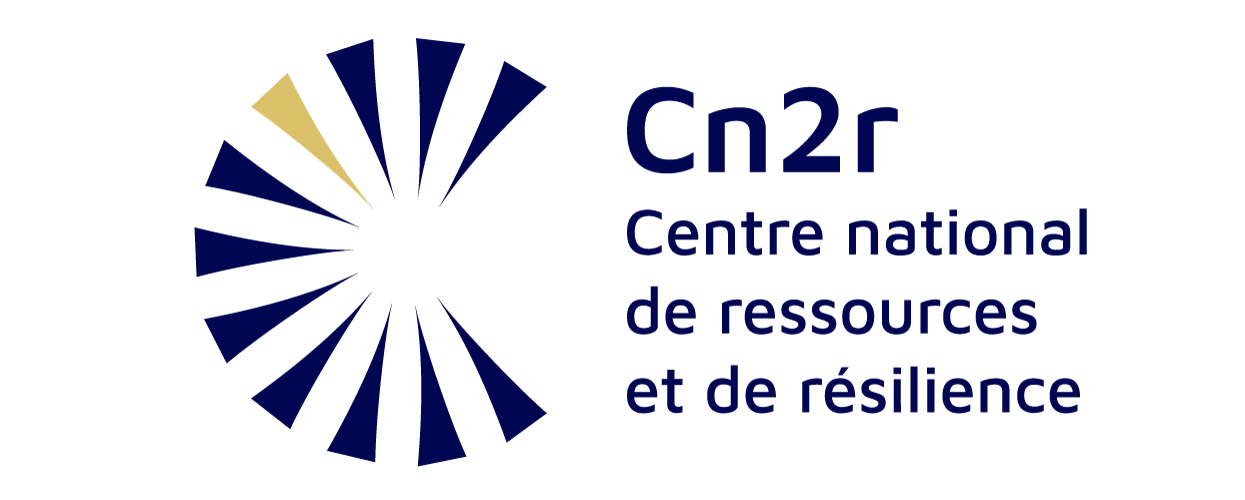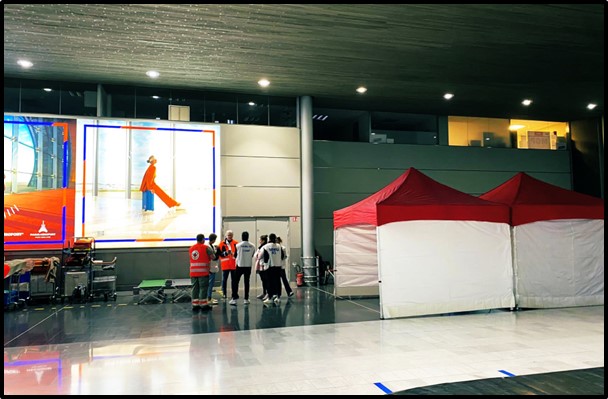Clashes continue in Sudan, and more and more civilians are fleeing. In its May 9 report, the UN counted over 700,000 displaced persons in the country. Earlier, 117,000 people had already fled to other countries, mainly neighboring ones. France has repatriated several hundred people who were in Sudan when the conflict broke out on April 15. Emergency psychological care was provided as soon as they arrived at Roissy airport to help them and prevent the risk of post-traumatic stress disorder.
Terminal 2 at Roissy-Charles de Gaulle airport, April 26. Dawn is breaking and dozens of people are already busy preparing to welcome the 260 or so repatriates from Sudan who will soon be landing. These professionals and volunteers include Lydie Lenglart, psychologist referent for CUMP 93, and eight of her colleagues, including a psychiatrist intern. Their mission? To offer a listening ear and "an empathetic bath" to repatriated people. "When they tried to flee to the airport, most of them saw corpses in a difficult state, scenes of horror, some of them stormed by the militia, threatened with firearms, kidnapped... Our immediate mission is to bring them back to the world of the living", explains the psychologist.
In professional parlance, this is known as "defusing": emergency psychological care to be offered in the first few hours following a traumatic event. It's a technique regularly used by CUMP ( Cellule d'Urgence Médico-Psychologique) professionals. On this day at the airport, the aim is not to conduct a psychological debriefing or initiate therapy, but to enable the returnees to express their feelings. "For the moment, these people are staying in a hotel, but it's only temporary. If they eventually leave to join friends or family in the provinces, we put them in touch with the local CUMP. Starting therapy here would be like a surgeon cutting open a stomach and leaving it open," explains the psychologist.
Seven @cump_93 professionals deployed this morning at Roissy CDG as part of the Sagittaire program set up by the government to evacuate civilians from Sudan. 25 people received treatment, 55 received counseling/orientation. @Avicenne_RMuret @CN2R_France @APHP pic.twitter.com/ptJjtPUNaW
- CUMP 93 (@cump_93) April 26, 2023
In the meantime, the first aid offered by CUMP 93 is much appreciated. That day, at the airport, the professionals were talking to around a hundred people. Before the plane lands, they also take the time to talk to families and loved ones. "The aim is not to leave them alone with their loved ones, who are having nightmares and jumping at the slightest slam of the door," adds Fabrice Viel, who is also a referral psychologist with CUMP 93. "It's important that the families involved are aware of the symptoms of post-traumatic stress disorder and that they know it can be treated."
Immediate care
Immediate psychological care, within a few hours of a traumatic event, is the main mission of the CUMP units created following the Paris RER attacks in 1995. At Jacques Chirac's request, Minister Xavier Emmanuelli called on General Physician Louis Crocq to set up these units, which were soon operating in conjunction with the Samu at several terrorist scenes. Fabrice Viel was one of the first to volunteer, "first as a nurse, then as a psychologist".
"The special feature of CUMP 93 is the presence of Roissy and Le Bourget airports. In general, when people are repatriated from abroad following an accident or disaster, they arrive there," continues Fabrice Viel, who has worked on the reception of Afghan refugees, but also abroad following the clashes in Côte d'Ivoire in 2004, in Thailand following the tsunami that same year, or following the explosions in the port of Beirut in 2020.
"Passengers getting off a plane are in large numbers and, having escaped the inferno, are often reluctant to wait for a consultation," explains Thierry Baubet, coordinating psychiatrist at CUMP 93. "On-site reception must therefore be sufficiently well-staffed to be able to see several people simultaneously." The cells generally remain active for a month. After that, psychological support can be offered by the CRP, the regional psychotrauma centers.
To find out more :
- The CUMP 93 information leaflet for people involved in a potentially traumatic event.



